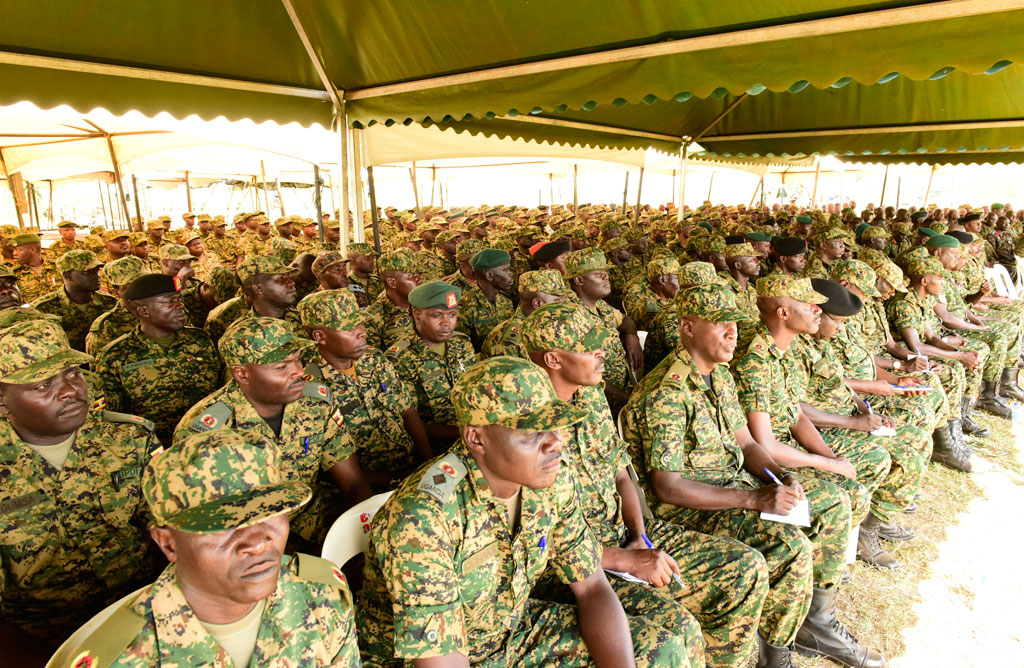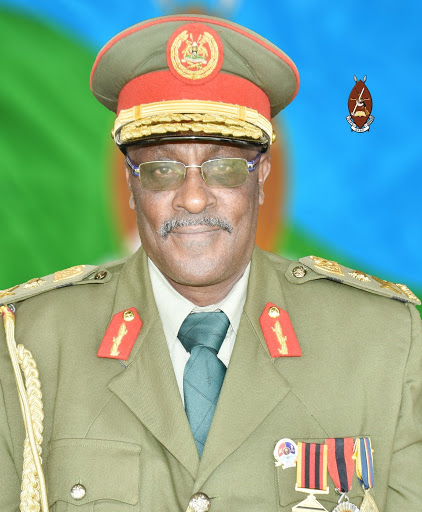The National Chairperson of the National Resistance Movement (NRM) President Yoweri Museveni has strongly urged Members of Parliament to help the people of their areas fight household poverty by assessing their involvement in modern commercial agriculture at each homestead at the Parish level.
“When you go back to your constituencies, do the assessment on economic projects your people do as overseers of economic sustainability of your people especially in the agricultural sector in your areas. Be practical on ground but not talking.
Those examples, who have woken up, are very important for others to learn from. That’s is why NRM is waking up all Ugandans to become part of the money economy,” Mr. Museveni said.
Delivering his opening keynote address to the NRM Caucus today at the National Leadership Institute (NALI) in Kyankwanzi District, the President noted that the tempo of the industrialization progress in the country is increasing.
The one-week long retreat is being attended by the First Lady and Minister of Education and Sports, Janet Museveni, Vice-President Edward Kiwanuka Sekandi, Prime Minister and Leader of Government Business in Parliament, Ruhakana Rugunda, NRM Deputy Secretary General, Richard Twodong and a cross section of senior government officials.
The President’s address hinged on the topic ‘Building a Resilient and Integrated Self-Sustainable Economy’.
Mr. Museveni told the retreat that the future of Uganda is bright adding that the country is already on the move in terms of building an integrated, self-sustaining and independent economy.
“Today we have 4,026 factories, employing 600,000 people; 8,200 companies in the service sector employing 1.2 million persons; 1.2 million commercial farmers employing about 7.8million people in the farming fields and 2,000 ICT companies directly or indirectly employing 3 million people. Yet, all these actors in development are only scraping the surface of the available national potential,” he noted.
The President assured the NRM Caucus that bottlenecks that still affect the economic development are being addressed adding that the answer to the cargo industry lies in electricity, railway and water transport.
He said that with the availability of the standard gauge railway, the cost of transporting a 40-feet container from Mombasa Port will reduce from US$3500 to US$1500 while increased electricity generation will see its rate reduced from US8-9 Cents to US5 Cents per unit.
Mr. Museveni stressed the need to address two more crucial areas for a more investor friendly atmosphere in the country that is free of delays and corruption of public officials and more wealth funds to be converted to Youth and Women Funds.
“Let’s cut out wasteful expenditure in form of hastily created local government structures; new districts, Sub Counties, Town Councils, foreign travels…….,” he said.
Vice-President Edward Kiwanuka Ssekandi lauded the President’s devotion to national development that goes a long way to exhibit his stamina.
The retreat will also deliberate on the theme of Industrialization for Jobs’ Creation and Shared Prosperity, focusing on how to reduce the number of Ugandans who are in subsistence economy.
The legislators will also be appraised on the country’s economic progress, take stock of the achievements so far realized and challenges encountered in the implementation process of the NRM Manifesto 2016-2021 and fostering constructive unity among NRM MPs, among other topics.
The Government Chief Whip, Ruth Nankabirwa, said that in her expectations at the end of the retreat, there will be further Caucus commitment to promote and defend the Party interests in Parliament and in aspects of national development.”
Prior to the opening ceremony, Dr. Maggie Kigozi, former Executive Director of Uganda Investment Authority addressed the Retreat on investment promotion, lessons learnt, challenges and prospects. She noted that on account of a conducive investment environment and security in the country, investors come and finally decide to stay.
Private Sector Chairman, Mr. Patrick Bitature, said that further enhancement of industrial promotion and development depends largely on effective leadership, peace, security, infrastructure, anti-corruption mind and building mutual trust.
He called for the empowerment of the youth and women in the private sector to root for viable economic projects to transform society.
He added that as efforts to fight against poverty increase, the Private Sector has earmarked a US$10 million Fund for a skilling programme.
Professor Vincent Anigboubu of the National Transformation of Nigeria said that leadership without serious execution of responsibility and discipline is incomplete.
















